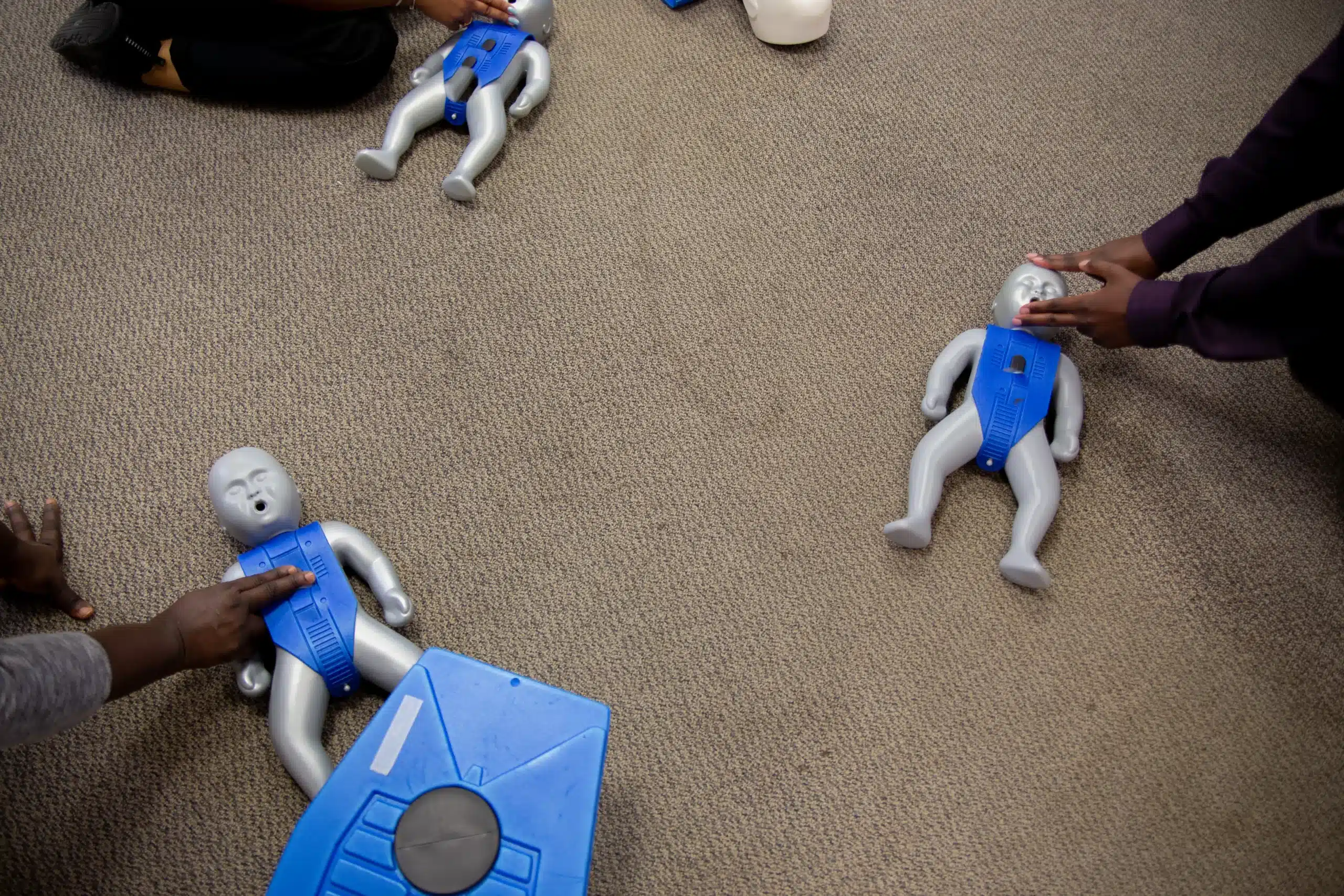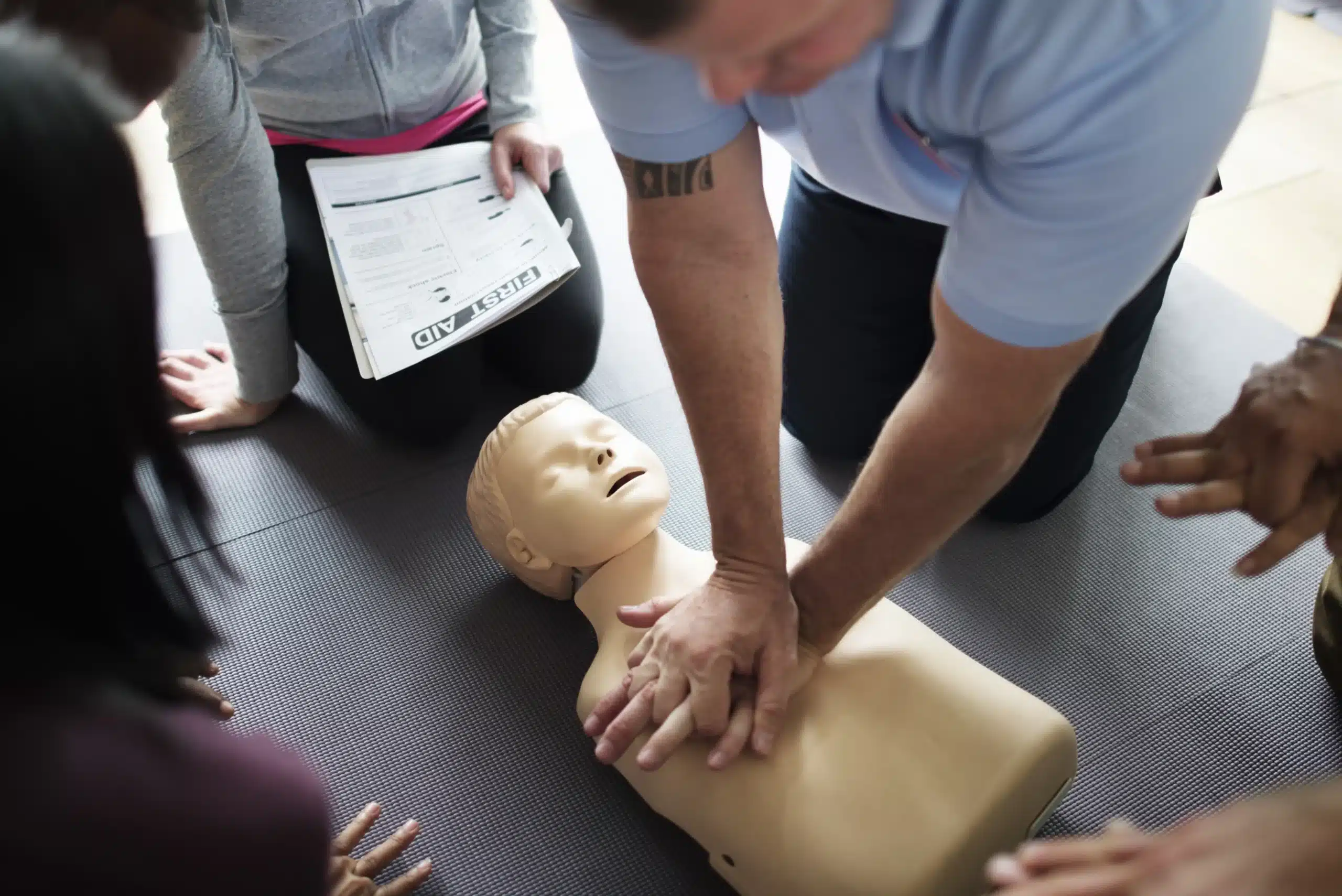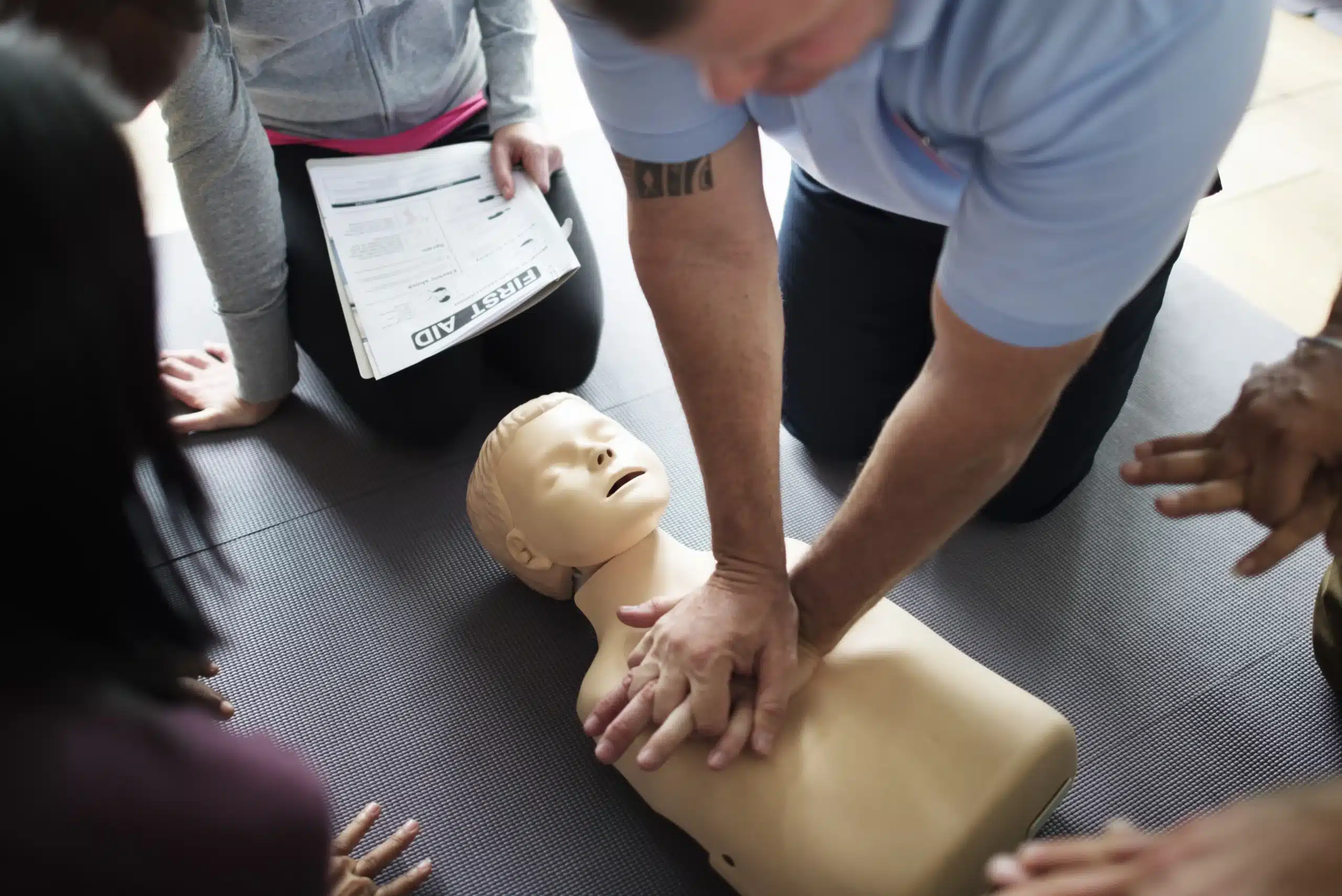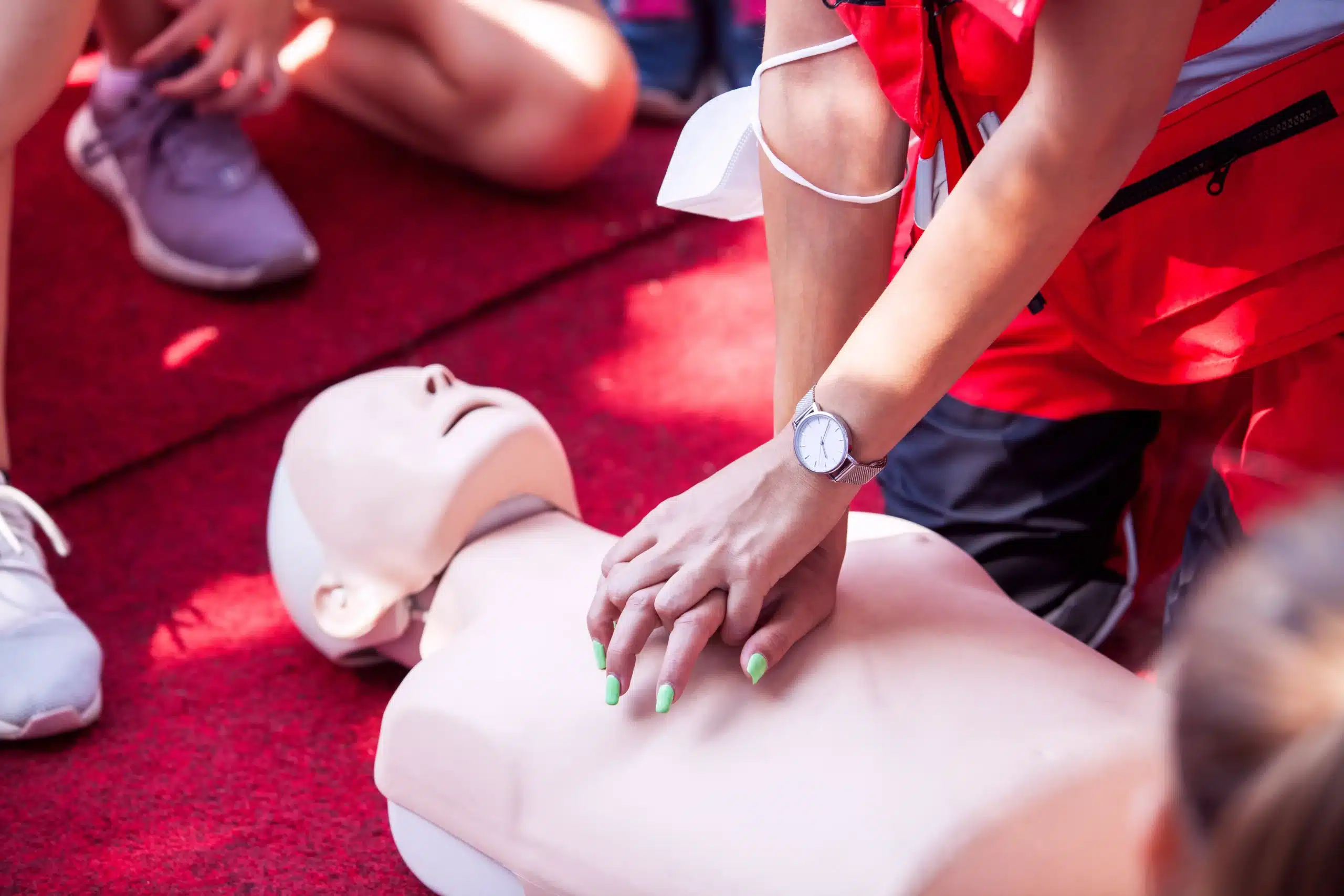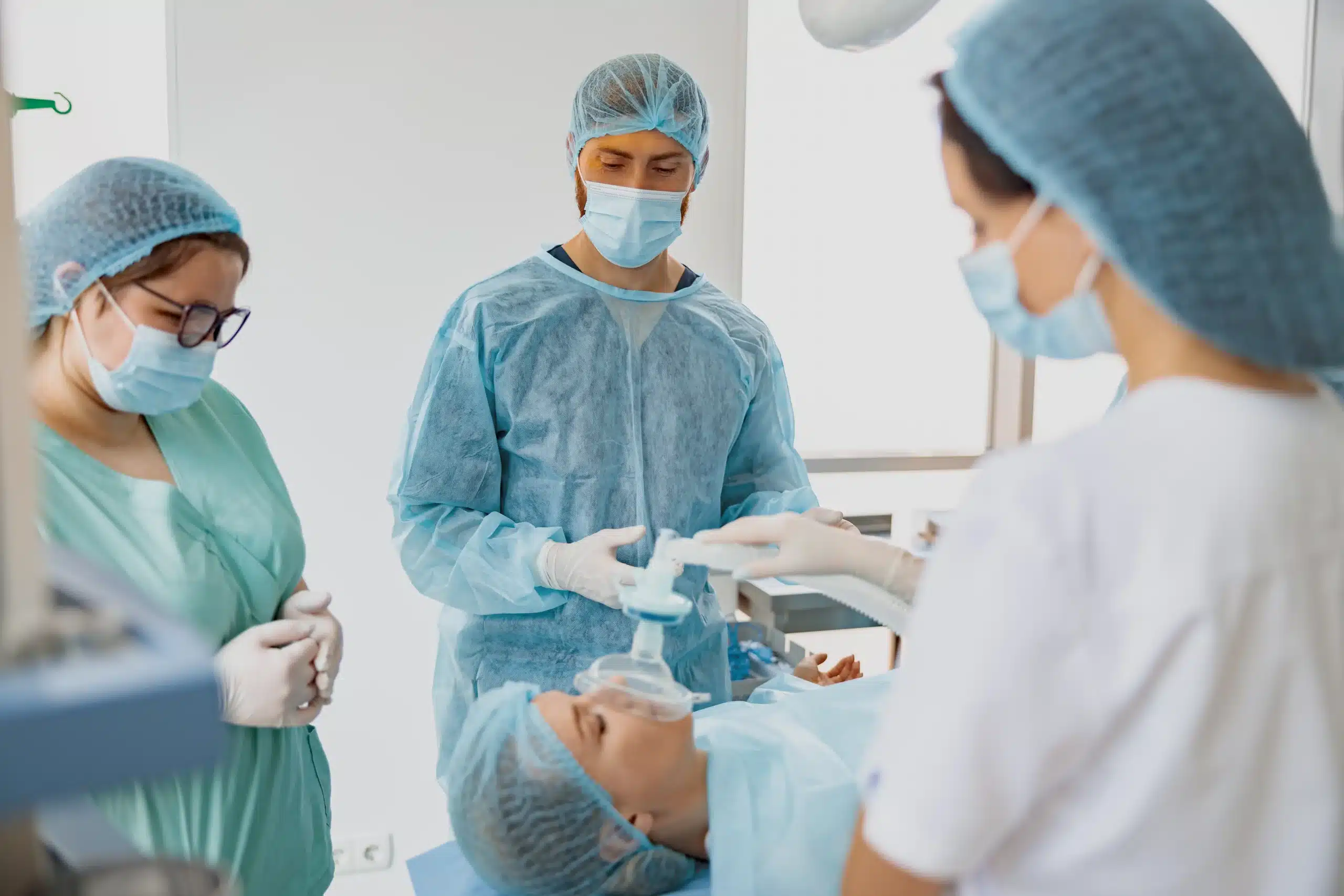The first few moments of a newborn’s life are precious and often unpredictable. In Palo Alto’s bustling medical community, healthcare professionals need to be prepared for any scenario. That’s where the Neonatal Resuscitation Program (NRP) comes in. NRP certification provides healthcare providers with the essential skills to stabilize and resuscitate newborns, ensuring the best possible start in life. This article will guide you through the essentials of NRP in Palo Alto, from understanding its core components to finding the right training program and navigating the certification process. Whether you’re a seasoned healthcare professional or just starting your career, this guide will provide valuable insights into the importance of NRP and its impact on neonatal care in Palo Alto.
Key Takeaways
- NRP certification equips you with essential newborn resuscitation skills: This training provides the knowledge and confidence to respond effectively to emergencies, improving outcomes and meeting professional standards in Palo Alto. Choose a program—online or in-person—that fits your learning style.
- Select your NRP provider carefully: AHA-compliant programs ensure high-quality training. Consider factors like class size, instructor experience, and the curriculum before enrolling. Local options like Redwood City CPR Classes offer convenient and comprehensive training.
- Stay current after earning your NRP certification: Maintain your skills and knowledge by adhering to renewal requirements, pursuing continuing education, and staying informed about the latest guidelines in neonatal care.
What is NRP? Essential Skills for Palo Alto Healthcare Professionals
What is the Neonatal Resuscitation Program?
The Neonatal Resuscitation Program (NRP) teaches healthcare professionals the skills to resuscitate and stabilize newborns. It emphasizes a team-based approach, ensuring everyone can contribute effectively during this critical time. The program uses evidence-based practices, meaning the techniques are backed by research and proven effective. The American Academy of Pediatrics (AAP) oversees the NRP and keeps the curriculum current with advancements in neonatal care. This focus on evidence-based practices makes NRP certification valuable for any healthcare professional working with newborns.
Key NRP Skills
NRP courses cover essential skills, from basic life support to advanced procedures. Participants learn to assess a newborn’s condition immediately after birth, clear the airway, provide positive-pressure ventilation, and perform chest compressions. The program also emphasizes effective team communication and coordination during resuscitation. These skills are crucial for providers like doctors, nurses, and respiratory therapists present at deliveries. Redwood City CPR Classes offers NRP training that covers these critical skills, preparing professionals to handle neonatal emergencies.
NRP’s Relevance to Palo Alto Healthcare
In Palo Alto, the demand for skilled healthcare professionals trained in neonatal resuscitation is high. The area’s hospitals and birthing centers need staff proficient in NRP techniques to ensure newborns receive the best possible care. NRP-certified professionals are vital for maintaining high standards of neonatal care within the Palo Alto medical community. Completing an NRP course shows a provider’s commitment to optimal newborn care in the region.
Why is NRP Certification Important in Palo Alto?
Impact on Neonatal Care
The first few minutes of a newborn’s life are critical. NRP certification equips healthcare professionals with the knowledge and skills to respond effectively to emergencies, stabilizing newborns and improving their chances of survival. The Neonatal Resuscitation Program emphasizes evidence-based practices, ensuring healthcare providers in Palo Alto stay up-to-date on the latest advancements in neonatal care. This translates to better outcomes for newborns and greater peace of mind for families. Early intervention and proper resuscitation techniques can significantly reduce the risk of long-term complications and disabilities.
Legal and Professional Requirements
In many healthcare settings, NRP certification is a prerequisite for professionals involved in newborn care. Hospitals and birthing centers often require their staff to hold current NRP certification to maintain high standards of care and comply with regulations. This certification demonstrates a commitment to best practices and enhances your professional credibility. Whether you’re a nurse, doctor, midwife, or respiratory therapist, NRP certification can open doors to more career opportunities in Palo Alto’s competitive healthcare landscape.
Addressing Palo Alto’s Healthcare Challenges
Palo Alto is known for its advanced medical facilities and high standards of care. However, even in a well-resourced area, challenges in neonatal care can arise. NRP training addresses these challenges by providing specialized education tailored to the needs of healthcare professionals in the community. This includes training for a wide range of specialists, from obstetricians and pediatricians to nurses and respiratory therapists. By investing in NRP training, Palo Alto strengthens its healthcare system and ensures newborns receive the best possible care.
Where to Get NRP Certified in Palo Alto
Finding the right NRP certification course can feel overwhelming, but several excellent options are available in and around Palo Alto. Here’s a breakdown of providers to help you make the best decision:
Redwood City CPR Classes
Redwood City CPR Classes offers NRP training designed for healthcare professionals involved in newborn care. Their convenient location serves Palo Alto, Redwood City, and Menlo Park. They also offer other certifications, including ACLS and PALS training. Check out their NRP course details for more information.
Stanford Health Care
Given its renowned medical expertise, Stanford Health Care is a natural choice for NRP training. They provide comprehensive neonatal resuscitation training to prepare healthcare professionals for newborn emergencies. Explore their website for program details.
Lucile Packard Children’s Hospital
Lucile Packard Children’s Hospital, another respected institution, offers NRP courses emphasizing team-based care and the latest evidence-based practices. Visit the Lucile Packard Children’s Hospital website for more information.
El Camino Health
El Camino Health offers NRP certification focused on the critical skills needed for effective neonatal resuscitation. Their courses are designed for various healthcare providers. Learn more on the El Camino Health website.
Safety Training Seminars
Safety Training Seminars provides NRP courses and boasts the lowest prices in Northern California, even offering a price-match guarantee. See their NRP course information to learn more.
CPR123
CPR123 offers a flexible approach to NRP certification and recertification with online, on-site, and on-campus options. They highlight their award-winning training approach. Visit the CPR123 website for details.
National Resuscitation Provider
For those who prefer online learning, National Resuscitation Provider offers fully online NRP certification and recertification based on the latest AAP and AHA guidelines. Explore their online programs on the National Resuscitation Provider website.
Online vs. In-Person NRP Training
Deciding between online and in-person NRP training depends on your learning style and schedule. Both formats cover the same core material and lead to the same certification, but offer distinct advantages. Let’s explore the pros and cons of each to help you make the best choice.
Benefits of Online NRP Courses
Online NRP courses offer flexibility for busy professionals. You can study at your own pace and revisit the material whenever you need a refresher. Many online programs incorporate interactive elements like virtual simulations, giving you opportunities to apply your knowledge in realistic scenarios. Plus, online access often extends beyond the initial certification period, allowing you to review the virtual simulations anytime during your two-year NRP certification. Another perk? Online programs are generally accepted by most healthcare institutions, ensuring your certification is widely recognized.
Advantages of In-Person NRP Training
In-person NRP training provides a structured learning environment and the immediate feedback of a certified instructor. In-person classes cater to diverse healthcare professionals, including obstetricians, pediatricians, and nurses, fostering a collaborative learning experience. The hands-on practice with real equipment and simulated scenarios builds confidence and reinforces essential skills. Plus, the in-person format streamlines the certification process, allowing easy access to your electronic certification card after completing the course.
Choose the Right NRP Format
The best NRP format for you depends on your individual needs. If you value flexibility and self-paced learning, an online course might be a good fit. If you prefer hands-on instruction and a structured classroom setting, in-person training might be more beneficial. Consider your learning style, schedule, and access to resources when making your decision. The NRP course agenda can vary based on class size and individual needs, so factor that into your planning.
NRP Certification Costs & Discounts in Palo Alto
Finding the right NRP course in Palo Alto means balancing quality training with a manageable cost. This section breaks down the typical expenses and highlights ways to access more affordable options.
Average NRP Certification Costs
The average cost for NRP certification in Palo Alto hovers around $280. This usually includes the online NRP course materials, the in-person skills evaluation, and your official NRP provider card. This comprehensive pricing ensures you receive thorough training and proper certification in neonatal resuscitation. For the latest pricing, check Redwood City CPR Classes.
NRP Discounts and Promotions
Many training centers in and around Palo Alto offer competitive pricing and frequent promotions. Look for early bird discounts, group rates (ideal if you’re training with colleagues), or student discounts. Contact different providers and compare prices—it’s always a good idea to explore all your options. Check out Redwood City CPR Classes group discounts for potential savings.
Low-Price Guarantees
Some organizations offer a low-price guarantee, demonstrating their commitment to accessible training. If you find a comparable, valid American Academy of Pediatrics NRP course at a lower price, they’ll often match it. Redwood City CPR Classes offers this guarantee, ensuring you receive high-quality training at the best possible price.
What to Expect in Your NRP Course
Attending an NRP course is a significant step towards becoming a skilled neonatal resuscitation provider. Here’s a glimpse of what awaits you during your NRP training:
Course Content and Structure
NRP courses are comprehensive and designed for various healthcare professionals involved in newborn care, such as obstetricians, pediatricians, neonatologists, midwives, nurses, and respiratory therapists. The curriculum typically blends online learning with in-person instruction. You’ll usually begin with online modules covering the fundamentals of neonatal resuscitation, allowing you to learn at your own pace. The in-person portion emphasizes practical skills, simulations, and team training.
Skills Assessment and Certification
Your NRP course will include assessments to evaluate your understanding and proficiency. Expect a written exam covering key neonatal resuscitation concepts. You’ll also participate in simulated resuscitation scenarios to demonstrate your practical skills. After successfully completing the hands-on portion and passing the exam, you’ll receive your American Academy of Pediatrics (AAP) Neonatal Resuscitation Program electronic card.
Hands-On Practice
The core of NRP training lies in hands-on practice. You’ll work with specialized equipment, including infant mannequins, and learn essential techniques for airway management, positive-pressure ventilation, chest compressions, and medication administration. These realistic simulations build your confidence and prepare you for real-world scenarios. Check out our BLS course for more information on related life-saving techniques.
Team Communication Exercises
NRP courses emphasize effective teamwork during neonatal resuscitation. You’ll engage in simulations that require clear communication, coordinated efforts, and shared decision-making within a team. These exercises help you develop crucial communication skills for successful resuscitation outcomes.
Maintain Your NRP Certification in Palo Alto
Keeping your NRP certification current is essential for providing quality neonatal care. This involves understanding renewal requirements, pursuing continuing education, and staying informed about the latest guidelines. Doing so ensures you’re prepared to handle any newborn emergency with confidence and expertise.
Renewal Requirements
NRP certification is typically valid for two years. To renew, you’ll need to successfully complete a recertification exam. This exam usually consists of multiple-choice questions covering essential NRP concepts and procedures. Check with your certifying organization, often the American Academy of Pediatrics (AAP) or the American Heart Association (AHA), for specific requirements and deadlines. Knowing these details in advance helps you avoid any lapse in your certification, ensuring you can continue providing care without interruption.
Continuing Education
Even after initial certification, continuing education is crucial for NRP providers. Regularly reviewing NRP materials and participating in refresher courses can significantly enhance your skills and knowledge. Look for opportunities to attend workshops or online courses. These experiences offer valuable insights into best practices and emerging trends in neonatal resuscitation, allowing you to refine your techniques and stay at the forefront of neonatal care. Consider simulation training sessions to practice your skills in a realistic environment.
Stay Updated on Neonatal Care Guidelines
Neonatal care guidelines evolve with ongoing research and advancements in the field. Staying informed about these updates is vital for delivering the most effective care. The American Academy of Pediatrics provides valuable resources, including updated guidelines and educational materials. Regularly consulting these resources ensures you’re equipped with the latest knowledge and techniques in neonatal resuscitation. This commitment to ongoing learning demonstrates your dedication to providing the highest standard of care for newborns, giving parents and colleagues peace of mind.
Choose the Right NRP Provider in Palo Alto
Finding the right Neonatal Resuscitation Program (NRP) provider is crucial for your training and career. With several options in and around Palo Alto, selecting the best fit can feel overwhelming. This section breaks down key factors to consider, important questions to ask, and why American Heart Association (AHA) certification matters.
Factors to Consider
When selecting an NRP provider in Palo Alto, consider your team’s specific needs. NRP courses cater to various healthcare professionals involved in newborn care—obstetricians, pediatricians, neonatologists, midwives, nurses, and respiratory therapists. Look for a provider that understands the nuances of your role and offers tailored training. Think about class size, schedule flexibility, and the provider’s overall experience in neonatal resuscitation. Smaller classes often allow for more personalized instruction and hands-on practice. Redwood City CPR Classes offers various class formats to accommodate busy schedules and diverse learning preferences.
Questions to Ask Providers
Don’t hesitate to ask potential providers specific questions about their program. Inquire about the curriculum, instructors’ qualifications, and the instructor-to-student ratio. Understanding the program’s prerequisites is also essential. Clarify any pre-course work, such as online modules or reading materials. Asking questions like, “What if a provider attends an instructor-led event without completing Part 1 of the curriculum?” (as addressed by the American Academy of Pediatrics) clarifies the program’s structure and expectations. Also, ask about the provider’s renewal process for a smooth recertification experience later.
Importance of AHA Certification
Choosing an AHA-certified NRP program is paramount. The Neonatal Resuscitation Program® (NRP®) promotes an evidence-based approach to newborn care at birth and encourages effective team-based care. AHA certification signifies that the program meets rigorous standards and provides up-to-date guidelines. This certification enhances your skills and demonstrates your commitment to high-quality care, a significant advantage in Palo Alto’s competitive healthcare landscape. Ensure the provider you choose offers AHA-compliant training and certification so you receive the best preparation for real-world scenarios.
NRP Training’s Impact on Palo Alto Healthcare
Palo Alto’s commitment to excellent healthcare is evident in its focus on Neonatal Resuscitation Program (NRP) training. This specialized training has a ripple effect, positively influencing patient outcomes, building healthcare providers’ confidence, and creating stronger medical teams.
Improve Patient Outcomes
NRP training equips medical professionals with the skills to handle neonatal emergencies. The American Academy of Pediatrics (AAP) emphasizes evidence-based practices in its NRP courses, ensuring healthcare providers in Palo Alto stay current on the latest advancements in neonatal care. This results in better outcomes for newborns. For local options, consider Palo Alto CPR classes that offer comprehensive NRP training aligned with these standards.
Enhance Professional Confidence
The NRP Provider Course builds confidence in healthcare professionals by providing a clear, evidence-based approach to neonatal resuscitation. Mastering these essential skills empowers individuals to respond decisively and effectively in critical situations, reducing anxiety and promoting preparedness. This increased confidence contributes to a more positive and effective work environment.
Strengthen Healthcare Teams
NRP training isn’t just about individual skills; it’s about teamwork. The program fosters collaboration and communication among healthcare providers, including nurses, doctors, and respiratory therapists. Local NRP courses address the diverse needs of these professionals, creating a shared understanding of best practices and protocols. This collaborative approach strengthens healthcare teams, leading to more coordinated and efficient care for newborns in Palo Alto.
Related Articles
- NRP Classes in Redwood City, CA – Redwood City CPR Classes
- ACLS Renewal Palo Alto: Your Complete Guide – Redwood City CPR Classes
- First Aid Training in Menlo Park: A Complete Guide – Redwood City CPR Classes
- BLS Courses in Redwood City: Your Complete Guide – Redwood City CPR Classes
- CPR Certification in Redwood City: Your Complete Guide – Redwood City CPR Classes
Frequently Asked Questions
What exactly does NRP certification cover?
NRP certification focuses on the immediate care a newborn receives after birth. It covers essential skills like assessing the baby’s condition, clearing the airway, providing breathing support, and performing chest compressions if needed. It also emphasizes teamwork and communication during resuscitation.
Why is NRP certification important if I work in Palo Alto?
Palo Alto has high standards for healthcare. NRP certification shows you’re committed to best practices in newborn care, which is important for both your career and the quality of care in the area. Many hospitals and birthing centers require it.
What’s the difference between online and in-person NRP training?
Both online and in-person NRP training cover the same core material and lead to the same certification. Online offers flexibility to study at your own pace, while in-person provides hands-on practice and direct interaction with an instructor. The best choice depends on your learning style and schedule.
How much does NRP certification cost, and are there any discounts?
NRP certification typically costs around $280 in Palo Alto, but many providers offer discounts. Look for early bird specials, group rates, or student discounts. Some providers also offer a low-price guarantee.
How do I maintain my NRP certification once I have it?
NRP certification is usually valid for two years. You’ll need to complete a recertification course and exam before it expires. Staying up-to-date on the latest guidelines and pursuing continuing education opportunities will also help you maintain your skills and knowledge.

